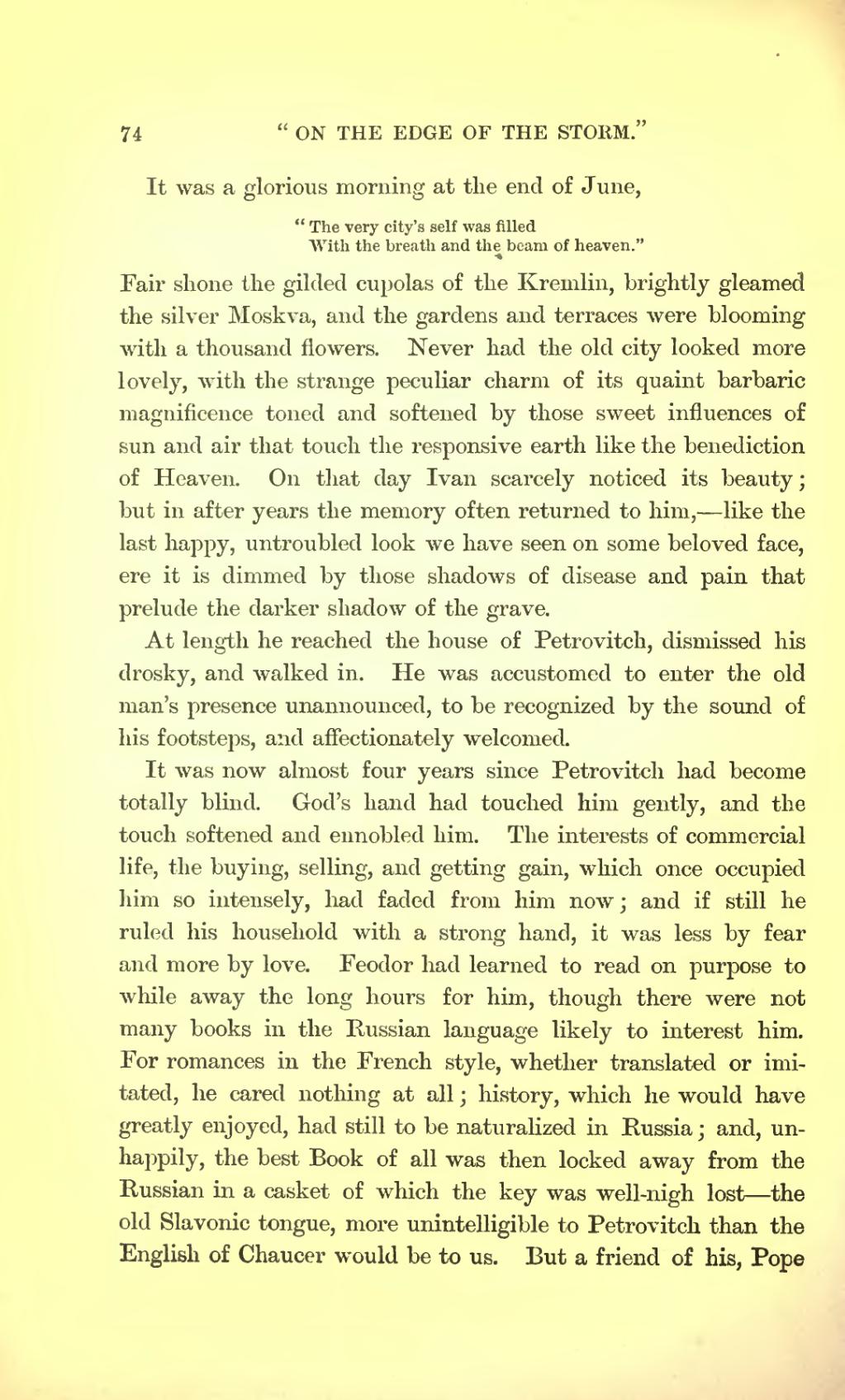It was a glorious morning at the end of June,
"The very city's self was filled
With the breath and the beam of heaven."
Fair shone the gilded cupolas of the Kremlin, brightly gleamed the silver Moskva, and the gardens and terraces were blooming with a thousand flowers. Never had the old city looked more lovely, with the strange peculiar charm of its quaint barbaric magnificence toned and softened by those sweet influences of sun and air that touch the responsive earth like the benediction of Heaven. On that day Ivan scarcely noticed its beauty; but in after years the memory often returned to him,—like the last happy, untroubled look we have seen on some beloved face, ere it is dimmed by those shadows of disease and pain that prelude the darker shadow of the grave.
At length he reached the house of Petrovitch, dismissed his drosky, and walked in. He was accustomed to enter the old man's presence unannounced, to be recognized by the sound of his footsteps, and affectionately welcomed.
It was now almost four years since Petrovitch had become totally blind. God's hand had touched him gently, and the touch softened and ennobled him. The interests of commercial life, the buying, selling, and getting gain, which once occupied him so intensely, had faded from him now; and if still he ruled his household with a strong hand, it was less by fear and more by love. Feodor had learned to read on purpose to while away the long hours for him, though there were not many books in the Russian language likely to interest him. For romances in the French style, whether translated or imitated, he cared nothing at all; history, which he would have greatly enjoyed, had still to be naturalized in Russia; and, unhappily, the best Book of all was then locked away from the Russian in a casket of which the key was well-nigh lost—the old Slavonic tongue, more unintelligible to Petrovitch than the English of Chaucer would be to us. But a friend of his, Pope
